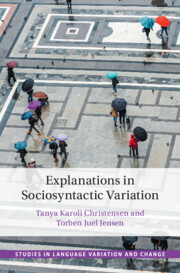Building on data from Icelandic, this article argues that there are two kinds of case variation, formal and semantic. The first type features lexical case as one of the variants whereas the second type involves structural vs. inherent case. The semantic effect found with the latter kind of variation follows from the semantic requirements associated with inherent case and these may cut across different uses of the same verb. It is also shown how the weak status of disappearing lexical case manifests itself in the grammar of Icelandic and Faroese.
